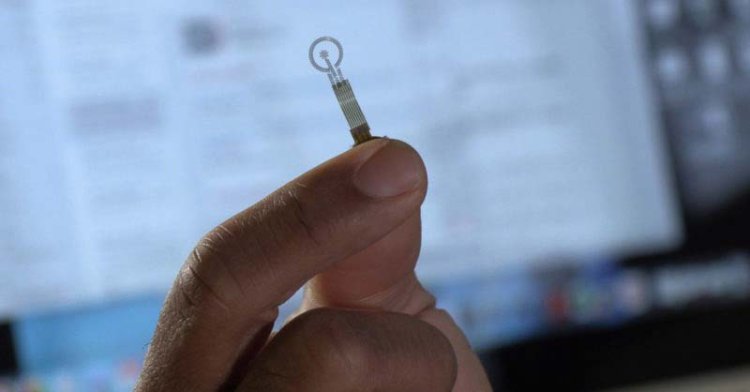Electric Bandage: A Breakthrough in Chronic Wound Treatment
A new era of wound care may be dawning with the development of an innovative electric bandage.

Researchers have made significant strides in developing a cost-effective, user-friendly bandage that harnesses the power of electricity to accelerate wound healing.
Chronic wounds, often caused by diabetes, circulatory problems, or severe burns, can be debilitating and difficult to treat. These wounds heal slowly, if at all, and can lead to serious complications including infection, amputation, and even death. Traditional treatments often involve expensive, complex procedures and medications, placing a heavy burden on patients and healthcare systems.
The groundbreaking electric bandage offers a potential game-changer. Equipped with electrodes and a small, biocompatible battery, the bandage generates a gentle electric field when activated. This electrical stimulation has been shown to promote healing in several ways:
- Accelerated wound closure: The electric field stimulates cell growth and migration, leading to faster wound closure.
- Increased blood vessel formation: Improved blood flow to the wound area delivers essential nutrients and oxygen, enhancing healing.
- Reduced inflammation: The bandage helps to control inflammation, a key factor in chronic wound development.
In initial studies conducted on diabetic mice, wounds treated with the electric bandage healed approximately 30% faster compared to those treated with conventional bandages. This promising result highlights the potential of this technology to revolutionize wound care.
One of the most significant advantages of this new bandage is its affordability and ease of use. Unlike many existing treatments, the electric bandage is designed to be applied by patients at home, reducing the need for frequent medical visits. This accessibility could make a substantial difference in the lives of individuals suffering from chronic wounds.
While the research is still in its early stages, the potential implications of this breakthrough are immense. If successful in human trials, the electric bandage could significantly improve the quality of life for countless patients and alleviate the economic burden associated with chronic wound care.
As scientists continue to refine this technology, the medical community eagerly awaits further developments with hope and anticipation. The electric bandage represents a beacon of hope for those struggling with chronic wounds, offering the promise of a future where healing is more accessible and effective.






















